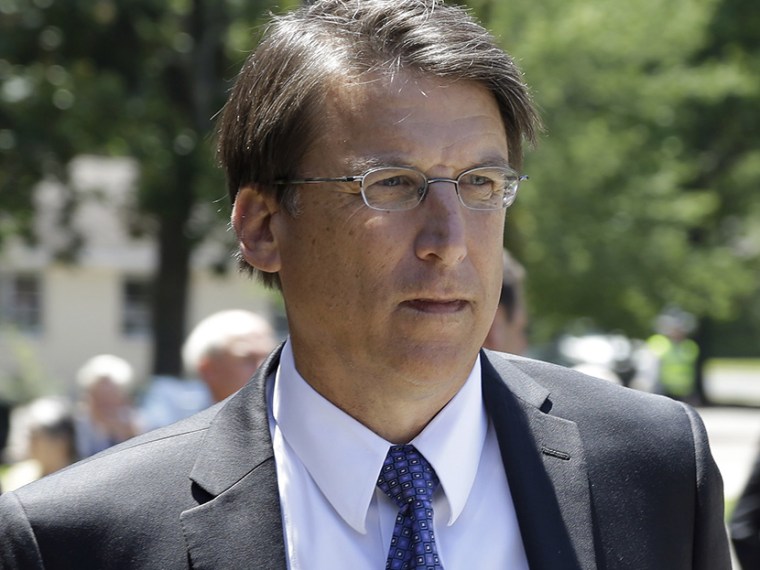North Carolina Gov. Pat McCrory is set to sign some of the most restrictive voting measures in the nation—but there's just one problem: he isn't entirely familiar with the bill.
When asked by the Associated Press on Friday about a provision of the bill that would eliminate early registration for students before their 18th birthday, McCrory responded, "I don't know enough, I'm sorry. I haven't seen that part of the bill."
The new law would also require voters to present a government-issued photo ID card at the polls, end same-day voter registration, and shorten early voting by one week.
Republicans have argued the new law is necessary to combat voter fraud. But new data from the state's Board of Elections suggests that voter fraud is not an issue for the state. According to the Board, of the nearly 7 million ballots cast in the 2012 election, there were 121 alleged cases of voter fraud discovered. In 2010, only 28 cases of voter fraud were alleged of the 3.79 million ballots cast.
In March, North Carolina House Speaker Rep. Thom Tillis argued on msnbc that voter fraud was not the primary reason for pushing the legislation. "We call this restoring confidence in elections," Tillis said.
Voting rights' advocates have criticized this move by state Republicans as an attempt to suppress voter turnout, particularly among minorities, young voters, and the poor. According to George Mason University's United States Elections Project, Democrats cast 47% of early votes in North Carolina in 2012, while Republicans cast 32% of early votes.
McCrory also said Friday he would sign into law the state's newest abortion restrictions, despite having campaigned on a promise to not do so.
